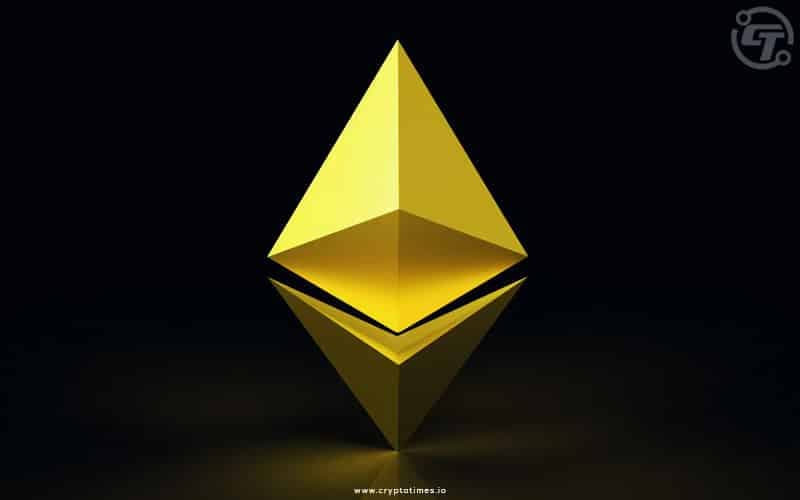In Brief:
- Ethereum founder Vitalik Buterin and Ethereum developer Ansgar Dietrichs released EIP-4488.
- The proposal aims at lowering gas costs for Ethereum Layer-2 scaling solutions.
- The update is a temporary remedy to escalate gas fees experience.
Ethereum founder Vitalik Buterin and Ethereum developer Ansgar Dietrichs issued EIP-4488, an Ethereum improvement proposal aimed at lowering gas costs for Ethereum Layer-2 scaling solutions.
Buterin and Dietrichs proposed the EIP-4488 update on the Ethereum Improvement Proposal GitHub repository. The suggestion is meant to be a temporary remedy for rising gas prices while more durable options are created.
Gas fees are payments paid by users to miners on a blockchain network for transactions. They charge users to have their transactions added to the block.
The gas fees for ETH have been extremely high in recent months. Furthermore, the gas expenses on Layer-2s with ZK Rollups or Optimistic Rollups, which were formerly cheap, are still incredibly expensive for users.
EIP-4488 aims to reduce Layer 2 gas prices in two ways: by lowering the cost of transaction calldata, which is a key mechanism for both Optimistic and ZK-Rollups, and by imposing a limit on the total amount of transaction calldata that can be in a block.
According to Buterin, it is now possible to increase the amount of data space accessible to rollups, as block sizes are nowhere near those sizes that would harm network stability.
EIP4488 proposes to cut the cost of roll-ups by 5x and adds a restriction on the amount of calldata that can be held in a block, with a theoretical limit of 1MB per slot.
As a short-term fix for rollups’ flaws, a data sharding approach is currently in place. This idea, on the other hand, can be employed as a long-term solution to the problem of high gas prices.
If the proposal is approved, it will demand a network update, resulting in a backward-incompatible gas repricing for the Ethereum ecosystem.
This upgrade will also require miners to follow a new rule that bans new transactions from being added to a block once the overall calldata size reaches the maximum.
As stated in the proposal, “A worst-case scenario would be a theoretical long-run maximum of ~1,262,861 bytes per 12-sec slot or ~3.0 TB per year.”
According to the zkSync team, the objective is to reduce gas prices before Christmas this year.
Ethereum’s EIP-1599 update went live earlier in August which included a burnable fixed-per-block network cost and dynamically expands/contracts block sizes to deal with temporary congestion. A few days back EIP-1559 burned over 1 million ETH, with the total value of the ETH burned currently estimated to be over $4.3 billion.






